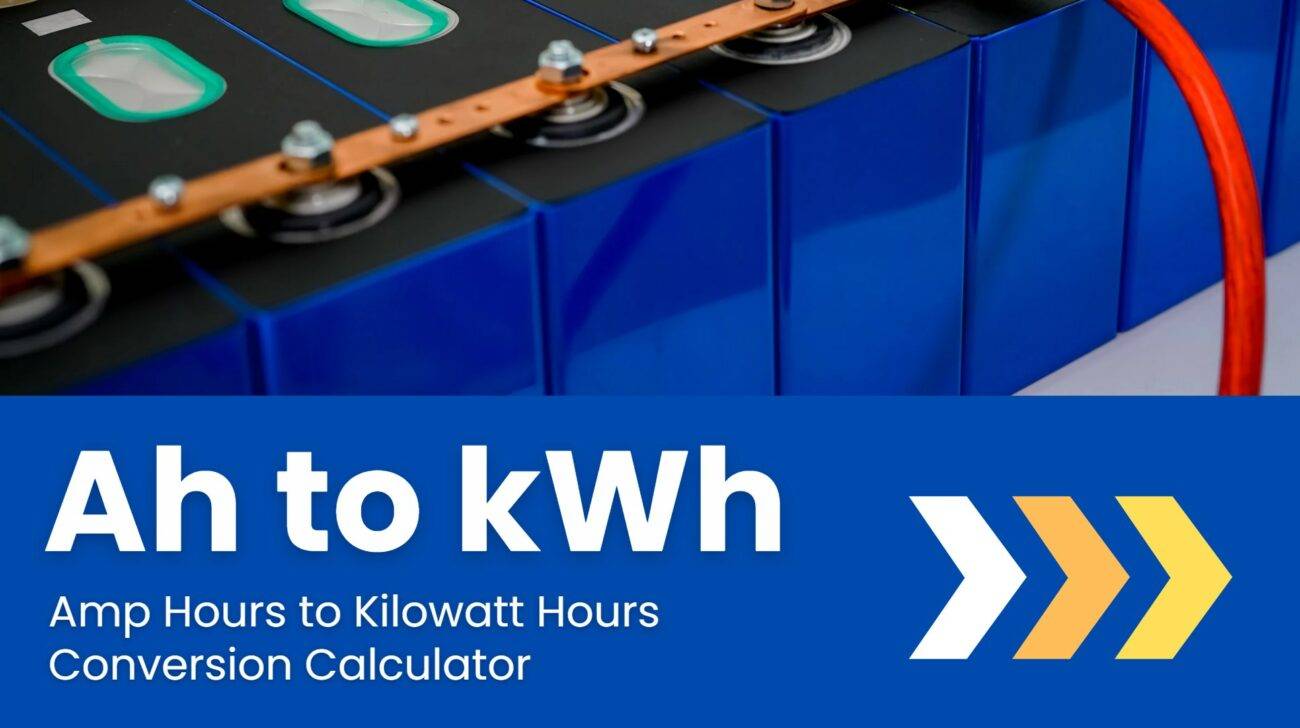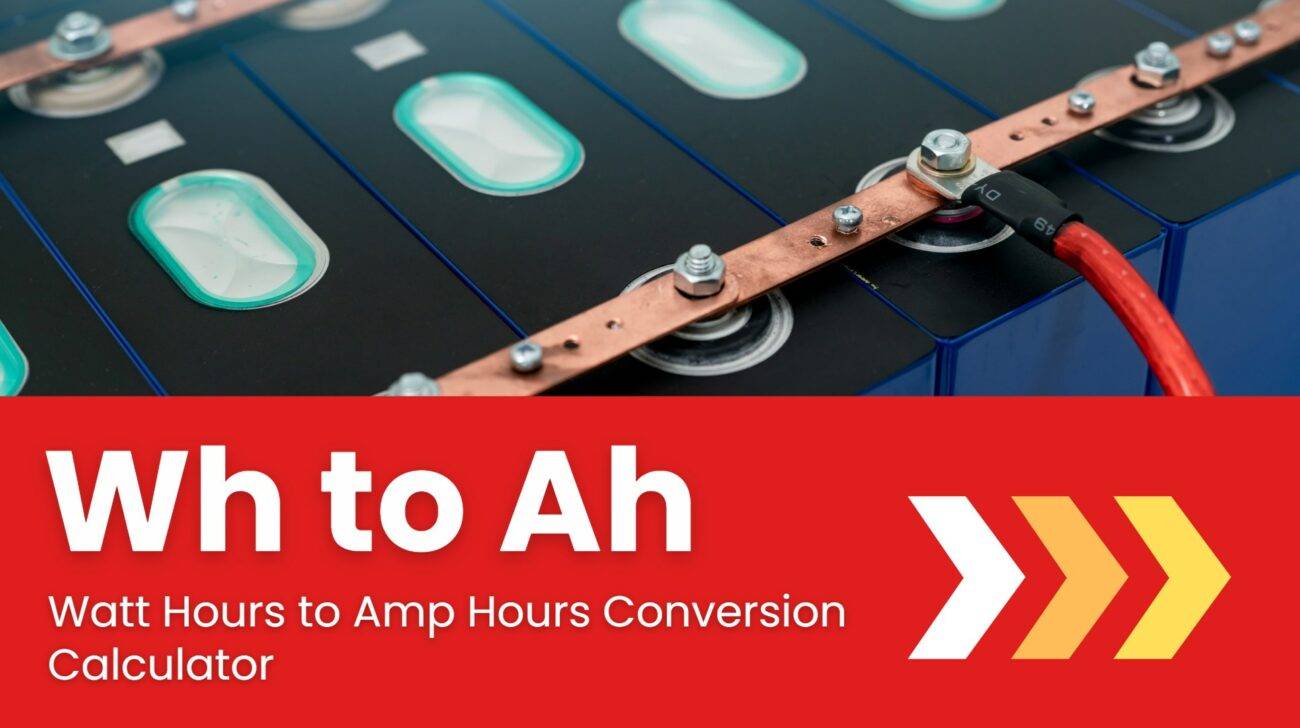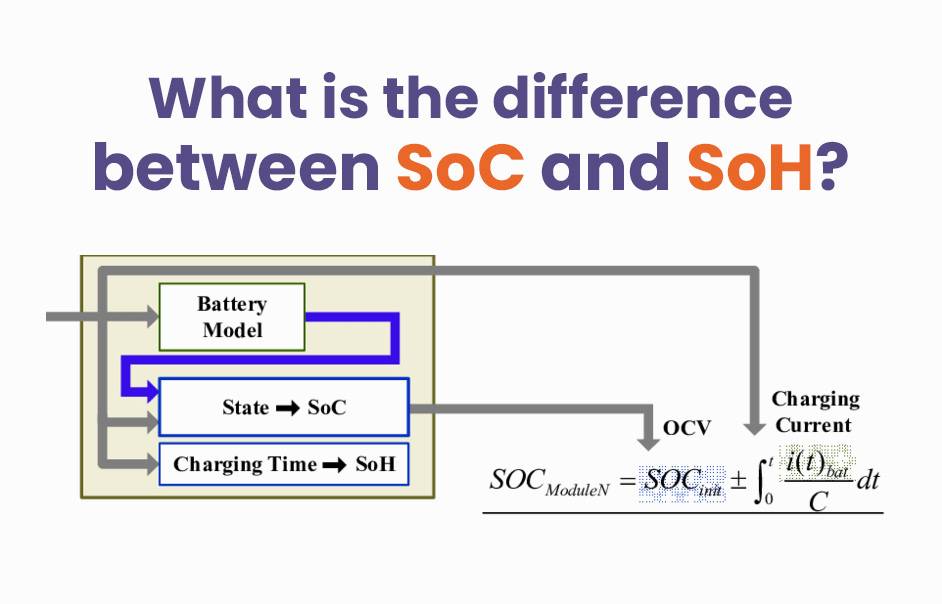
Blog
Watt Hours to Milliamp Hours Calculator (Wh to mAh)

A Watt-hour (Wh) measures energy, while a milliamp-hour (mAh) measures electric charge. To convert Wh to mAh, use the formula: mAh = (Wh × 1000) ÷ Voltage. This helps determine battery capacity for electronics, solar devices, and e-bikes. Redway Power provides practical guidance for OEM battery solutions with accurate energy-to-charge conversions.
What Is the Difference Between Watt Hours and Milliamp Hours?
Watt-hours represent the total energy a battery can deliver over time, calculated as Voltage × Amp-hours. Milliamp-hours measure the battery’s charge storage capacity. While Wh indicates energy potential, mAh shows how long a battery can power a device at a specific voltage. Converting between them requires knowing the battery voltage.
How Do You Convert Watt Hours to Milliamp Hours?
To convert Wh to mAh, use the formula:
mAh = (Wh × 1000) ÷ Voltage
For example, a 12V 36Wh battery: mAh = (36 × 1000) ÷ 12 = 3000 mAh. This conversion is essential when comparing batteries of different voltages or designing compatible power systems for devices like solar lights, e-bikes, and portable chargers.
Why Is Knowing mAh Important for Battery Selection?
Milliamp-hour rating helps predict runtime for devices. Higher mAh means longer usage before recharge. It is crucial for sizing batteries in applications such as electric scooters, energy storage systems, and backup power. Redway Power integrates mAh calculations into OEM battery packs to ensure optimal device compatibility and performance.
Which Factors Affect Wh to mAh Conversion Accuracy?
Voltage fluctuations, battery efficiency, and temperature can affect the conversion. The nominal voltage is used for calculations, but real-world performance may vary. Accounting for these factors ensures better estimation of runtime and energy requirements in practical applications, especially for industrial or solar power systems.
Can You Use Wh to mAh Conversion for LiFePO4 Batteries?
Yes, LiFePO4 and other lithium batteries follow the same conversion formula, but nominal voltage differs (e.g., 3.2V per cell for LiFePO4). Correct voltage selection is essential to calculate accurate mAh and design balanced battery packs. Redway Power specializes in LiFePO4 OEM packs with optimized Wh-to-mAh calculations for reliable energy solutions.
Where Is Wh to mAh Conversion Commonly Applied?
Conversion is widely used in consumer electronics, e-bikes, solar lights, and energy storage systems. Designers, engineers, and consumers use it to compare battery capacities and estimate device runtime. Redway Power applies this conversion in industrial-scale battery packs to ensure precision and performance in OEM products.
What Are Common Mistakes When Converting Wh to mAh?
Ignoring the correct voltage, not accounting for series or parallel battery configurations, and neglecting efficiency losses are frequent errors. Always confirm battery specifications before converting to avoid underestimating or overestimating capacity. Accurate calculation ensures proper device operation and prevents overloading.
How Does Voltage Impact the mAh Calculation?
Voltage inversely affects the mAh value: higher voltage reduces mAh for the same Wh, while lower voltage increases it. Correct voltage reference is critical for proper battery sizing. Engineers at Redway Power carefully consider voltage parameters to provide precise mAh specifications for OEM battery packs.
Chart title: Example Wh to mAh Conversion
| Battery Wh | Voltage (V) | Converted mAh |
|---|---|---|
| 36 Wh | 12 V | 3000 mAh |
| 50 Wh | 10 V | 5000 mAh |
| 100 Wh | 24 V | 4166 mAh |
Redway Power Expert Views
“Converting Wh to mAh is fundamental for battery design and device compatibility,” says a Redway Power expert. “Our OEM battery solutions integrate accurate calculations to optimize performance for e-bikes, solar devices, and industrial systems. Understanding these conversions helps users and engineers make informed decisions about battery sizing and runtime expectations.”
Conclusion
Understanding how to convert Watt-hours to milliamp-hours ensures correct battery sizing, runtime estimation, and device compatibility. Factors like voltage, efficiency, and battery chemistry influence accuracy. Redway Power leverages precise Wh-to-mAh conversions in OEM LiFePO4, lithium-ion, and industrial battery solutions, supporting safe, reliable, and high-performance energy storage applications.
FAQs
What is the formula to convert Wh to mAh?
mAh = (Wh × 1000) ÷ Voltage.
Can you convert mAh to Wh?
Yes, Wh = (mAh × Voltage) ÷ 1000.
Does battery chemistry affect the conversion?
No, the formula applies to all chemistries, but voltage differs by type.
Why is voltage important in conversion?
Voltage determines the actual energy per charge unit, impacting mAh calculation.
Are Wh and mAh interchangeable?
No, Wh measures energy; mAh measures charge capacity. Conversion requires voltage.







